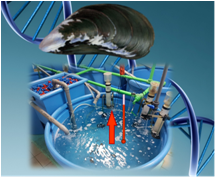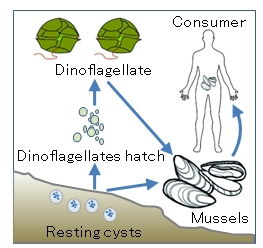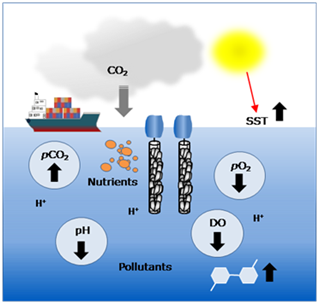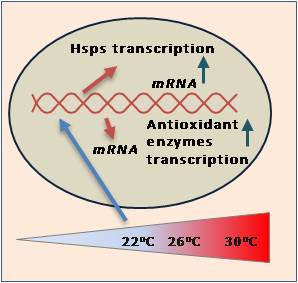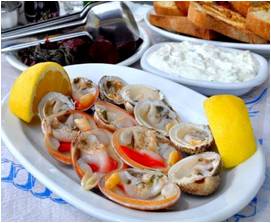Ioannis Georgoulis*, Ioannis Giantsis, Konstantinos Feidantsis and Basile Michaelidis said:
"Ηeat hardening"-Could it be proved a tool for enhancing mussels' thermotolerance?
Τhe Mediterranean Sea is recognized as a hotspot of global change, ranking among the fastest warming ocean regions (Moullec et al., 2019). Climate change will continue to intensify within coastal zones throughout this century (IPCC, 2014), while climate projections indicate a potential increase in SST of 1–1.5oC in Eastern Mediterranean, Aegean, and Adriatic Sea from 2000 to 2050, with summer SST regularly surpassing 29oC in the South Eastern Mediterranean (Galli et al., 2017). Temperature levels of 25-26oC, are commonly reached during summer over large areas of the Mediterranean Sea, especially in shallow water coastal ecosystems. These temperatures have been identified, at best, as an upper limit for mussels’ normal physiological activities (Anestis et al., 2007; Feidantsis et al., 2020; Lupo et al., 2021). However, it has been reported that an organism’s thermal tolerance capacity can be increased when acclimated to extreme temperatures followed by a brief exposure to sub-lethal temperatures, a phenomenon named "heat hardening". Alternative to heat hardening other terms have been used as ‘acquired stress response’ (Moyen et al. 2020).
In this prism we run experiments under laboratory conditions in order to illustrate the gene expression and the molecular responses at a cellular level which may be involved via phenotypic plasticity in the longer survival of Mytilus galloprovincialis during subthelal sea temperatures. Preliminary experiments and the obtained data indicated beneficial effects of hardening and significant increase in the percentage of mussels surviving lethal temperatures beyond 26oC-27oC. Gene expression related to mitochondria respiration and antioxidant defense seem to play a crucial role in enhancing mussels' thermotolerance. We are working now under field conditions in order to examine whether such an adaptive strategy will likely prove beneficial for M. galloprovincialis species under the extreme heat events predicted with climate change.
Anestis A, Lazou A, Pörtner HO, Michaelidis B. (2007). Behavioral, metabolic, and molecular stress responses of marine bivalve Mytilus galloprovincialis during long-term acclimation at increasing ambient temperature. Am. J. Physiol. 293: R911–R921.
Feidantsis K, Giantsis IA, et al., (2020). Correlation between intermediary metabolism, Hsp gene expression, and oxidative stress-related proteins in long-term thermal-stressed Mytilus galloprovincialis. Am J Physiol. 319(3):R264-R281.
Galli G, Solidoro C and Lovato T (2017) Marine Heat Waves Hazard 3D Maps and the Risk for Low Motility Organisms in a Warming Mediterranean Sea. Front. Mar. Sci. 4:136.
Moullec F, Barrier N, et al. (2019). An End-to-End Model Reveals Losers and Winners in a Warming Mediterranean Sea. Front. Mar. Sci. 6: 345.
Moyen NE, Crane RL, Somero GN, Denny MW (2020) A single heat-stress bout induces rapid and prolonged heat acclimation in the California mussel, Mytilus californianus. Proc. R. Soc. B. 287(1940): 20202561.
Lupo C, et al., (2021). Mortality of marine mussels Mytilus edulis and M. galloprovincialis: systematic literature review of risk factors and recommendations for future research. Rev. Aquacult. 13(1): 504-536.
*John Georgoulis is PhD student at the Laboratory of Animal physiology, Department of Zoology, Faculty of Biology, under the supervision of Professor Basile Michaelidis.




